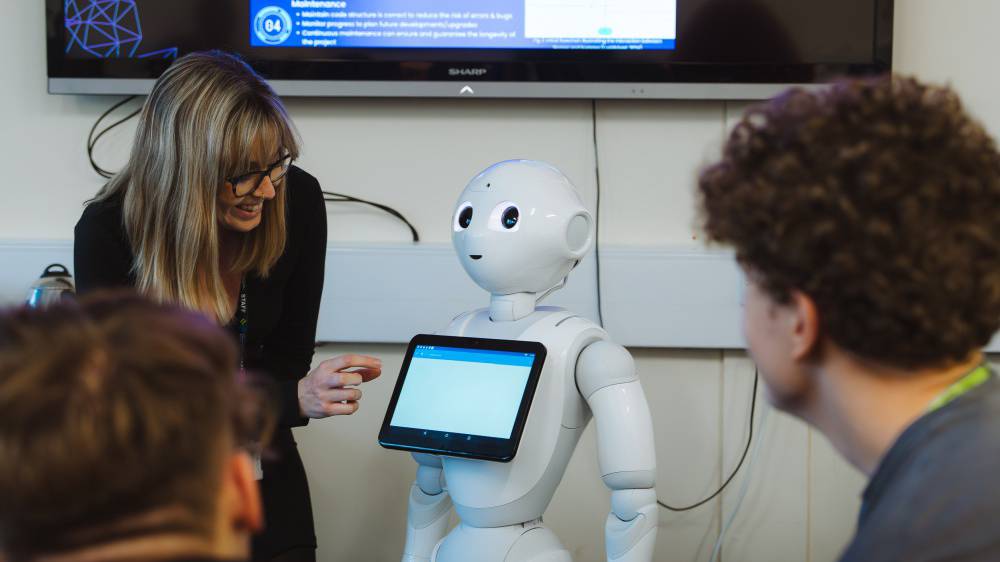Cisco CCNA
Key Details
- Available at:Rhos-on-Sea
- Study Mode:Part-time
- Course Length:
1 evening a week (3.5hrs), over a period of 3 semesters
Course Description
This course is currently under revalidation in consultation with employers and stakeholders, in order to refresh course content for delivery from September 2025
This is an industry-recognised course that will appeal to those that would like to pursue a career within the IT networking field.
The course will give an introduction to computer networks, then delve into how switches, routers and wireless equipment work and the processes used by the equipment to provide a Local Area Network (LAN).
It will then build on this newly gained knowledge by learning the architectures and considerations needed in designing, securing, operating, and troubleshooting an enterprise network. Wide Area Network (WAN) technologies and Quality of Service (QoS) mechanisms will be explored.
Virtualisation, software-defined networking and automation concepts along with cybersecurity will be addressed to help future-proof networks.
Entry Criteria
Basic knowledge of computers and networks.
Delivery
The majority of the course content will be delivered via the Cisco Netacad system, with hands-on experience given within the networking lab at the college.
Assessment
There are 5 internal exams in the first module, 6 in the second module and a further 5 in the last module. Each module also has 3 assignments which are validated by Bangor University.
The first assignment is a written report, second assignment is the amalgamation of the internal exam grades sat within each module, and the third assignment comprises a Packet Tracer test (creating a virtual network).
Progression
The successful completion of this course will award you with a certificate of completion which could be used in local industry to help gain a post in a network environment for small to medium businesses. It will also enable you to externally sit the Cisco CCNA Certification Exam which would widen the students’ prospects as a network engineer.
Campus Information Rhos-on-Sea
CCNA is made up of two parts.
Part 1: CCNA Networking Academy Curriculum - this is provided by a range of academies (including Coleg Llandrillo) throughout the world. Their (and our) mandate is to use the CCNA programme to provide students with a broad grounding in the fundamental principles of networking (cabling, networking theory, mathematical numbering systems, electronics, network design, networking device configuration and client pc configuration are some of the subjects covered – see below for more information).
On enrolment onto the CCNA course you will be given access (through your own login id and password) to the Cisco Networking Academy website which contains the Cisco CCNA curriculum. The majority of the course material can be accessed through any web browser. However, you will need a laptop or desktop computer to install the Packet Tracer software (which is available for Windows, Linux and macOS) which is an important part of the learning experience.
Each of the semesters involves approximately 15 modules of material which are assessed via online assessments (through the Networking Academy), a short research report and a practical test completed using Packet Tracer.
On completion of all three semesters, you will have the opportunity to take a Practice Certification Exam.
Part 2: CCNA Certification Exam - the formal Cisco CCNA certification exam is available online. Before attempting this exam (which has a pass mark of around 80-85%), you will need to revise the material you have studied.
Other details
Course type: Part time training
Level:
4
Programme Area:
- Personal Learning Account
- Computing, Digital Technologies and Games Development
Bilingual:
n/a
Computing, Digital Technologies and Games Development
Learn more about this area and see our course level guide:
Computing, Digital Technologies and Games Development
